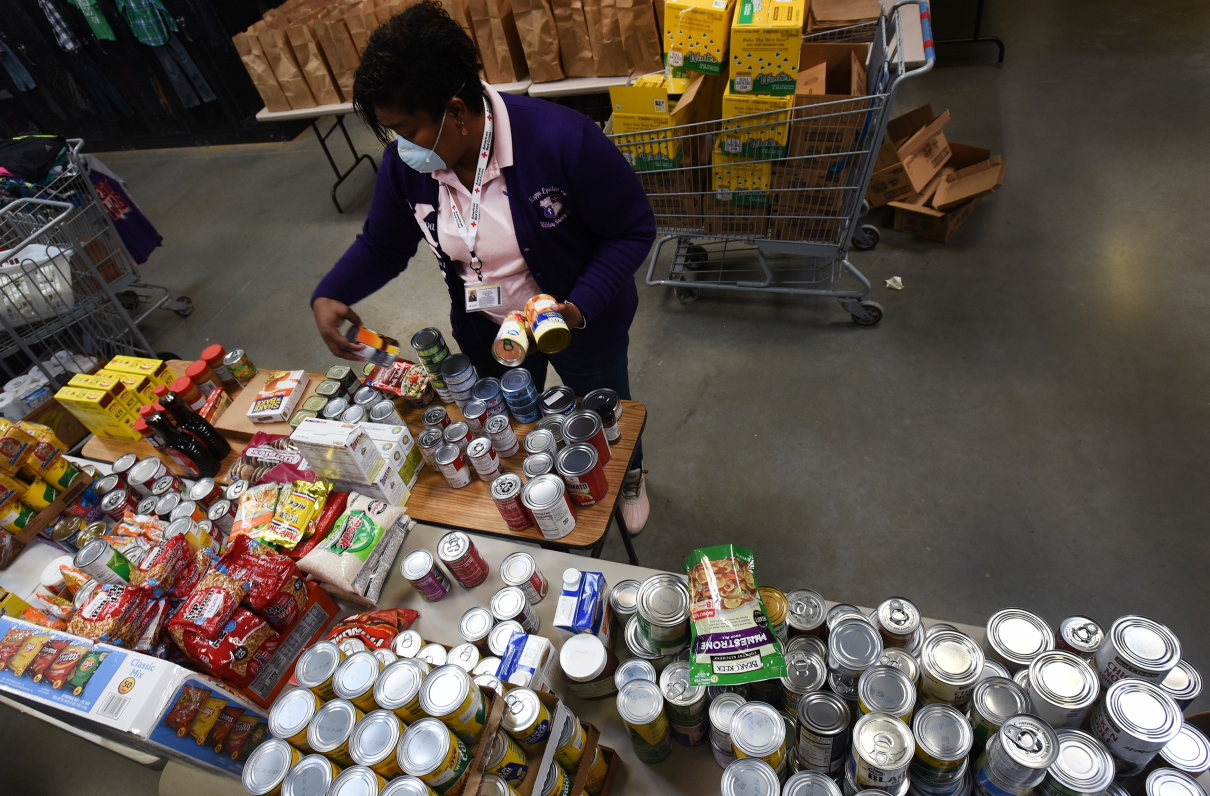Editor’s note: This article by Konstantin Toropin originally appeared on Military.com, a leading source of news for the military and veteran community.
Around one military family out of eight turned to food banks during the height of the COVID-19 pandemic, a new academic study led by a researcher at the University of Georgia has revealed.
Researchers surveyed more than 8,000 military families who applied for child care subsidies from the National Military Family Association, a military-focused nonprofit, in the spring of 2021 and found that about 13% of those families had used a food pantry in the past year.
[TAKE ACTION: Urge Your House Member to Support Improvements to the Basic Needs Allowance]
While advocacy organizations have long said that many military families struggle to put food on their tables -- a problem greatly exacerbated by the pandemic -- numbers that help quantify the issue and how troops cope are scarce and have usually come from sources outside the Pentagon.
Overall, data from 2020 and 2021 shows that more than 280,000 active-duty service members -- 24% of the military -- reported some level of food insecurity, according to Defense Department numbers released last year. However, very few of these troops are able to use federal programs like the Supplemental Nutrition Assistance Program, commonly known as food stamps or SNAP.
That program includes the military's housing allowance in income calculations, which results in low-income service members making too much to be eligible for food assistance.
The consequence is that, out of those nearly 300,000 hungry service members and families, only 22,000 were using SNAP as of 2019, the government data showed.
[TAKE ACTION: Urge Your Legislators to Pay Full Housing Costs for Servicemembers]
The newly released study found that, absent government assistance, families have been turning to places like food banks, pantries and other charitable food distribution resources.
Most of the families identified in the data averaged one or two kids, and almost two-thirds were dual income.
Surveys by military support groups, however, show that the majority of military spouses are underemployed or struggle to find work because they face hiring discrimination as a result of frequent relocations or gaps in their resumes.
While the recent study reached some expected conclusions -- rising higher in rank lessened the odds of needing the use of a food bank, while having more children increased the risk -- the data also revealed that Asian, Black and multiracial families were about 50% more likely to use food distribution services compared to white families.
[RELATED: Child Care Fees Plunge for Many Military Families Under New DoD Rate Setup]
The authors also noted that "the study found Army families were 131% more likely to use a food bank than Air Force families."
In another sign of the demand military families place on food banks, the nonprofit Feeding America reported in 2021 that 74 of its 199 food banks across the U.S. had a specific food assistance program for active-duty military families, and 34 were near a military base and regularly helping service members.
In 2023, Congress took up the issue of hunger in the ranks and passed a new benefit -- the Basic Needs Allowance -- which gives additional funds to troops with dependents whose gross household income falls below 130% of the federal poverty level.
Data on how effective this benefit has been is not yet available, but outside organizations report that the problem of military hunger has begun to wane slightly since the COVID-19 pandemic retreated.
[RELATED: 5 Top Concerns of Army Families, and What the Service Plans to Do About Them]
The Military Family Advisory Network found around 16% of military families were food insecure in 2022.
Support Military Spouses
Donate to The MOAA Foundation and support MOAA’s efforts to help military spouses in their career journeys.
